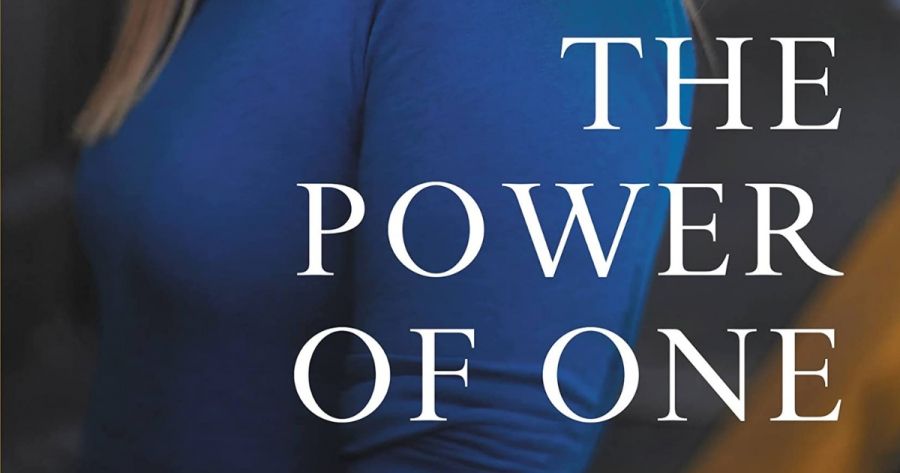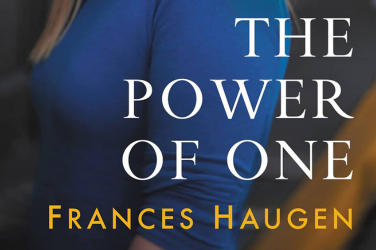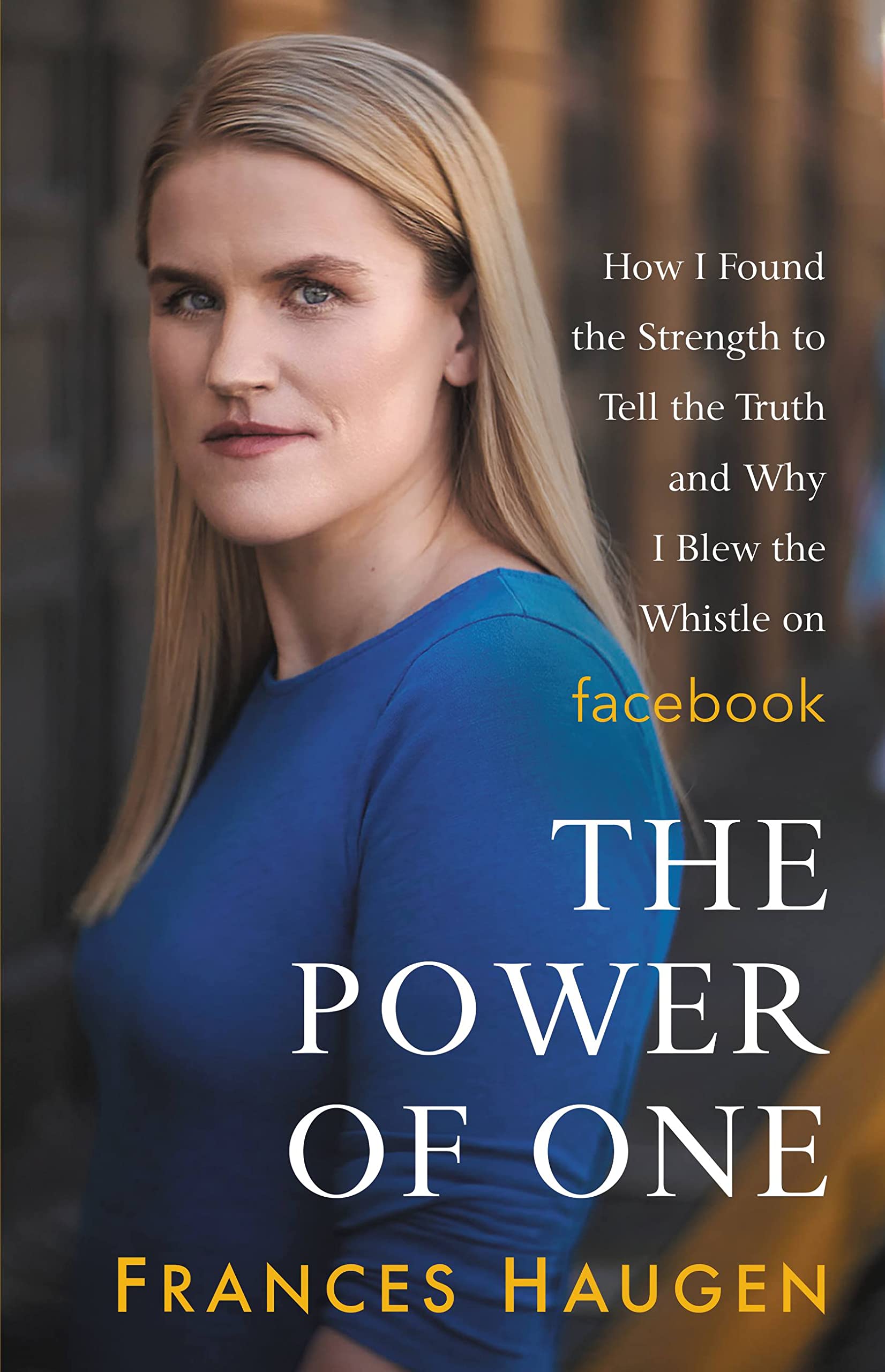
- Free Article: No
- Contents Category: Media
- Review Article: Yes
- Article Title: 'Someone was needed'
- Article Subtitle: The whistleblower who exposed Facebook
- Online Only: No
- Custom Highlight Text:
There is a paradox in the title of this book, The Power of One, by Facebook whistleblower Frances Haugen. It is an accurate description on one level, because the powerful whistleblowing that led to demands for stronger regulation and accountability in Big Tech was indeed the courageous choice of a lone individual, the author, an American engineer and data scientist. But as the book underscores, Haugen’s whistleblowing was successful – in that it achieved impact and she has walked away relatively unscathed – because of the ecosystem that surrounded her. Lawyers, media advisers, journalists, politicians, and civil society helped her to speak up and then amplified her calls for change. The whistleblowing that Haugen documents might more accurately be described as the power of a community dedicated to ensuring that one voice reaches the minds of many.
- Article Hero Image (920px wide):
.jpg)
- Article Hero Image Caption: Frances Haugen, 2021 (Stephan Röhl/Heinrich Böll Foundation via Wikimedia Commons)
- Featured Image (400px * 250px):

- Alt Tag (Featured Image): Kieran Pender reviews 'The Power of One: Blowing the whistle on Facebook' by Frances Haugen
- Book 1 Title: The Power of One
- Book 1 Subtitle: Blowing the whistle on Facebook
- Book 1 Biblio: Hodder & Stoughton, $34.99 pb, 336 pp
- Book 1 Cover Small (400 x 600):

- Book 1 Cover (800 x 1200):

The Facebook Files showed that the company was preying on the vulnerability of young users and had failed to take steps to address the misuse of social media by authoritarian regimes around the globe. The Files made unmistakably clear that the company was aware of the real-world harms caused or exacerbated by its platforms (which also include Instagram) and had failed to heed warnings from employees.
These were explosive revelations that stunned many out of a complacent view that Big Tech platforms were benevolent public squares, rather than commercial juggernauts that placed profit before people’s lives. At the centre of the whistleblowing was Haugen, an Iowa-born Harvard Business School graduate who had grown disillusioned with Facebook’s failures since joining the company as a product manager in the civic integrity team in 2019, following stints at several Silicon Valley powerhouses.
The book offers deeply personal insights into these developments – it is part procedural, part thriller. From a shout-out by President Joe Biden in his State of the Union address to the anxiety-inducing battle against a company more powerful than most nation states, The Power of One takes the reader along on a historic whistleblowing journey. ‘My journey was not that of a mythical hero, but of a small and different girl who persisted over and over again in small steps that added up over a long period of time,’ she writes.
At one point, Haugen reveals that she considered remaining anonymous. One of her lawyers had previously represented the whistleblower who exposed the phone call between then-President Donald Trump and Ukrainian leader Volodymyr Zelensky, which led to the first impeachment proceedings. The identity of that whistleblower remains unknown to this day.
Ultimately, Haugen decided to go public and become a vocal advocate for tech accountability – in the media and before parliamentary hearings in the United States and Europe. ‘Someone was needed to warn’ the world about the dangers posed by Facebook, Haugen writes. Having weighed up the options, Haugen realised ‘that someone would be me’.
At the time, Facebook’s founder, Mark Zuckerberg, described Haugen’s whistleblowing as presenting ‘a false picture’ of the company. He wrote, in a Facebook post: ‘At the heart of these accusations is the idea that we prioritize profit over safety and well-being. That’s just not true.’
It is probably too early to assess the full impact of Haugen’s disclosures. Facebook was engulfed in scandal, which helped send its share price plummeting – from a peak of nearly US$380 in 2021 to less than $100 (it is now back above $300). It changed its name to Meta. Regulators and governments are taking Big Tech accountability more seriously. Facebook remains a global behemoth, but it has lost its sheen of invincibility.
‘Facebook could no longer hide from the truth or from the demands of the public to change,’ Haugen writes. ‘We had collectively learned we no longer had to tolerate living in a world defined by Facebook. The era of “just trust us” was over.’
This is a powerful and important book, a clarion call for whistleblowing and accountability in an age of unprecedented corporate influence on societies and democracies by major tech firms. If there is criticism to be offered, it is that the book’s first half dwells too much on autobiographical details – early chapters trace her childhood and career progression to a degree that at times feels unnecessary (leading to a perhaps unduly harsh line in New Scientist’s review that ‘history shouldn’t forget Haugen, but, with regret, her book is pretty forgettable’).
The level of intimate detail about Haugen’s life was no doubt included to address another paradox: why, of the thousands of employees at Facebook, did only one speak up? Haugen traces some of her formative life experiences – a bereavement, battles with illness, a divorce, sexism in the tech sector – laced with the suggestion that these influenced her decision to finally speak up.
In a recent interview with Haugen, Steven Levy, editor-at-large of American tech bible Wired, noted that when he first met the whistleblower – she was at Google early in her career – he was ‘struck by her moral sense – she bristled at instances when the world wasn’t working as it should’. Levy also observed that Haugen struggled to fit into the homogeneous, male-dominated culture around her.
In the current landscape, with the odds stacked against them, it often takes an outsider to speak up. Too many whistleblowers do not have a happy ending, which leads to only those with uncommon moral fortitude being willing to risk it. Haugen’s whistleblowing story has ended as well as it could have: Facebook did not take legal action against her; she has since remarried and now lives by the beach in Puerto Rico; and she has, she says, been offered a number of other roles in the tech sector. But that is not a typical experience. She notes in legal text prefacing the book that it ‘recalls my experience whistleblowing and mine alone’ and that it is not intended to constitute ‘instructions for the process of whistleblowing’.
Perhaps the ultimate question then is how we change the ‘ecosystem of accountability’, as Haugen calls it, such that whistleblowers do not need such unusual courage to do what is right. How can we change the system so that there are not just one but rather many Facebook employees prepared to speak up? (Haugen has now started a non-profit organisation, Beyond the Screen, to contribute to the wider tech accountability movement.)
In the end, the whistleblower spoke up so that she could sleep at night. ‘I imagined tossing in bed in 20 years, unable to sleep because I knew I could have acted but didn’t,’ Haugen writes. She says she is optimistic others will reach the same conclusion. ‘Imagine if we all realised the power of one,’ she writes at one point. ‘What world could we build together if more people woke up to their own power?’
But the real lesson from Haugen’s whistleblowing might not be the power of one, but the power of many. Imagine if whistle-blowers, in Australia and elsewhere, were empowered through structures, communities, and ecosystems that helped them speak up. Imagine if courage did not have to cost so much. Imagine if it did not take someone like Frances Haugen to speak up, and that any one of us could become a whistleblower.
This article is one of a series supported by Peter McMullin AM via the Good Business Foundation.


Comments powered by CComment